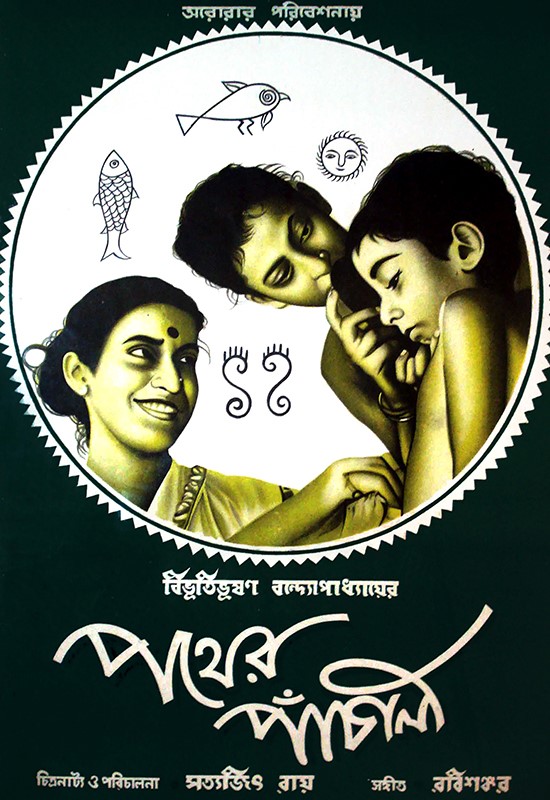
PATHER PANCHALI
1955 marked the scintillating debut of Satyajit Ray with Pather Panchali. The film has over the years crystallized itself as a seminal Indian classic globally. Adapted from a story by Bibhutibhushan Bandopadhyay, the film went on to win several national and international awards, leading to two more films taking forward the protagonist Apu’s life. The three films constitute the famous and acclaimed “Apu-Trilogy”.
***
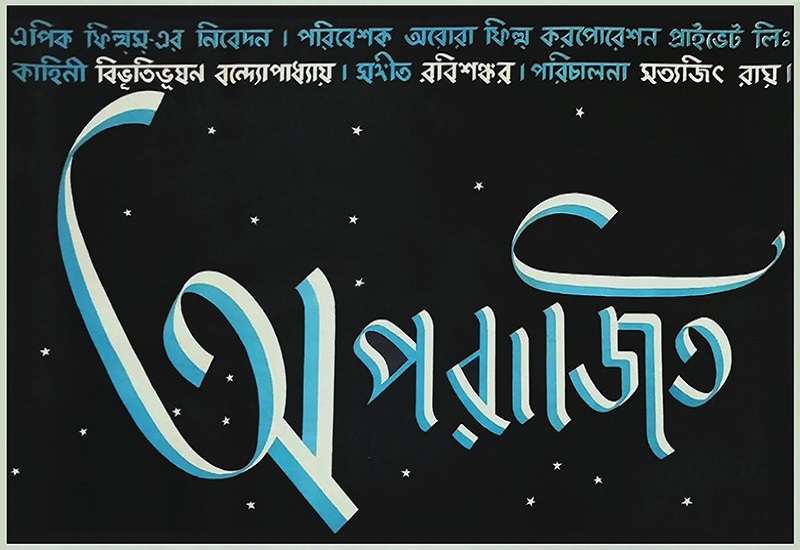
APARAJITO
The second film of Ray’s celebrated as part of the “Apu Trilogy”, is Aparajito, yet another adaptation of a story by Bibhutibhushan Bandopadhyay bearing the same title. Released in 1956, Aparajito marks the journey of Apu from childhood to adolescence as his family migrates to Varanasi. The film opened to critical acclaim internationally. The music score for this film, as in the previous, was composed by Pandit Ravi Shankar.
***

JALSAGHAR
Based on a short story by Tarasankar Bandopadhyay on the decay in the feudal world of a landlord, essayed brilliantly by Chhabi Biswas, Ray’s Jalsaghar released in 1958 to mixed reviews in India. Yet, the film managed widespread critical acclaim overseas and also won the President’s medal for Best Feature Film in Bengali the following year. Jalsaghar acquired a formidable following over the years, being rated among the best films of the master director.
***

APUR SANSAR
Satyajit Ray’s 1959 classic Apur Sansar is the concluding film of the ‘Apu Trilogy’ partly adapted from Bibhutibhushan Bandopadhyay’s novel Aparajito. Soumitra Chatterjee plays Apu in the film and Sharmila Tagore plays his wife, both actors worked with Ray for the first time in this film and went on to do more films with him in the later years. Music score of the film is credited to Pandit Ravi Shankar, who also composed for the other two films of the trilogy. The film received widespread praise, garnering the National Award for Best Feature Film and several international awards too.
***
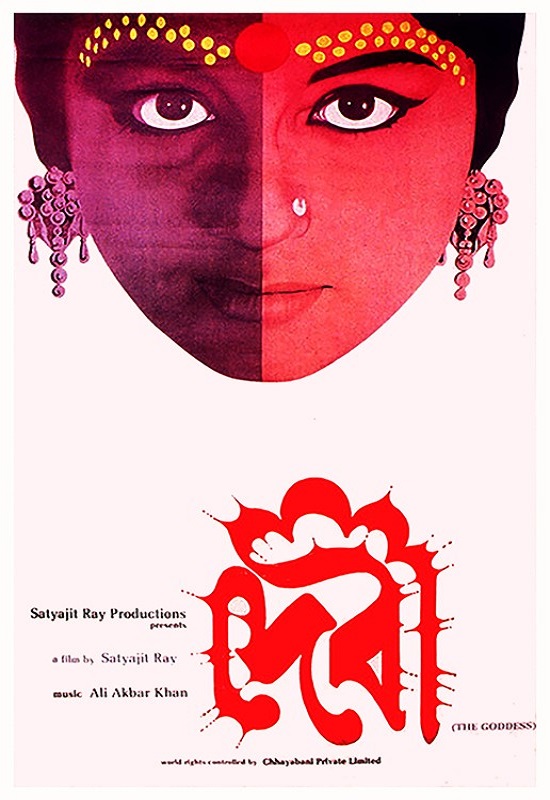
DEVI
Sharmila Tagore and Soumitra Chatterjee appear in their second Satyajit Ray film, Devi (1960) based on a story by Prabhat Kumar Mukopadhyay. It delved into the tradition of women and girls being considered as incarnation of goddesses in certain societies. Worldwide critical acclaim and Ray’s brilliance led director Francis Ford Coppola to term it as a “cinematic milestone”!
***
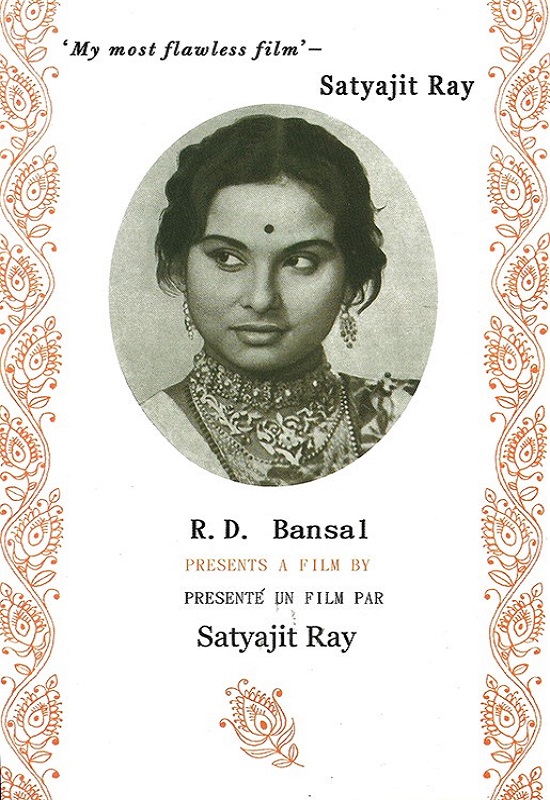
CHARULATA
For a majority of Ray admirers, the cinematic adaptation of Rabindranath Tagore’s story Nastanirh as Charulata remains the director’s best work. Released in 1964 to unprecedented critical acclaim, the film widely features among the 100 best films ever made globally. The simple tale of a lonely wife and her complex relationship with the husband, and a distant relative with whom she could relate more, impressed the critics across the globe as the film won several national and international awards, settling itself as a timeless Ray classic.
***
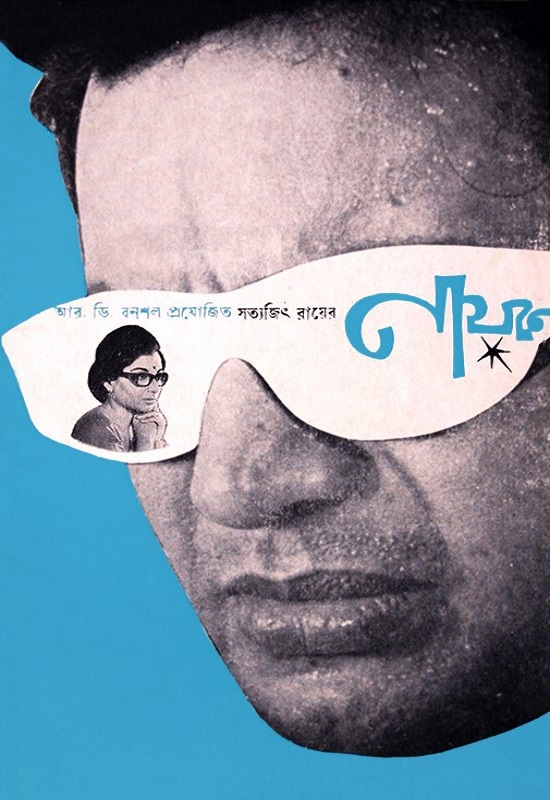
NAYAK
Written and directed by Satyajit Ray, Nayak was led by the reigning Bengali superstar Uttam Kumar in one of his finest roles, supported by Sharmila Tagore. The 1966 film delved in the psyche of a superstar, detaching the perceived aura from the person. The narrative remains within a train journey, with intelligent use of flashbacks. Uttam Kumar publicly acknowledged Nayak among his best works. The film, like most of Ray’s previous films, swept national and international awards. It was also a box-office blockbuster.
***
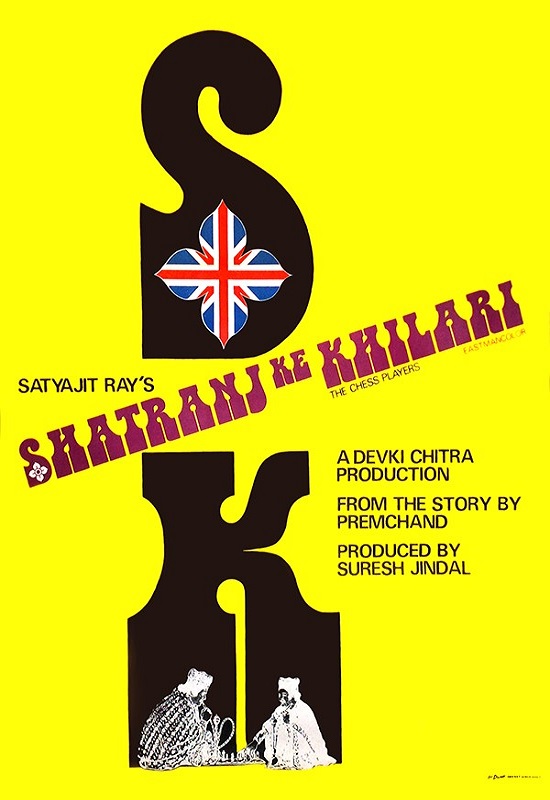
SHATRANJ KE KHILARI
Shatranj ke Khilari is the first Hindi film by Satyajit Ray, and the only occasion, when he used Amitabh Bachchan in his film (Bachchan narrates the film in the voice-over). The 1977 classic based on a Munshi Premchand story also had many mainstream Hindi cinema actors working with Ray including Shabana Azmi, Sanjeev Kumar, Saeed Jaffrey and Farida Jalal. But many were surprised that the primary role of Nawab Wajid Ali Shah of Awadh was played by Amjad Khan. Interestingly enough, Ray decided on Khan after viewing his intense performance in Ramesh Sippy’s Sholay.
***
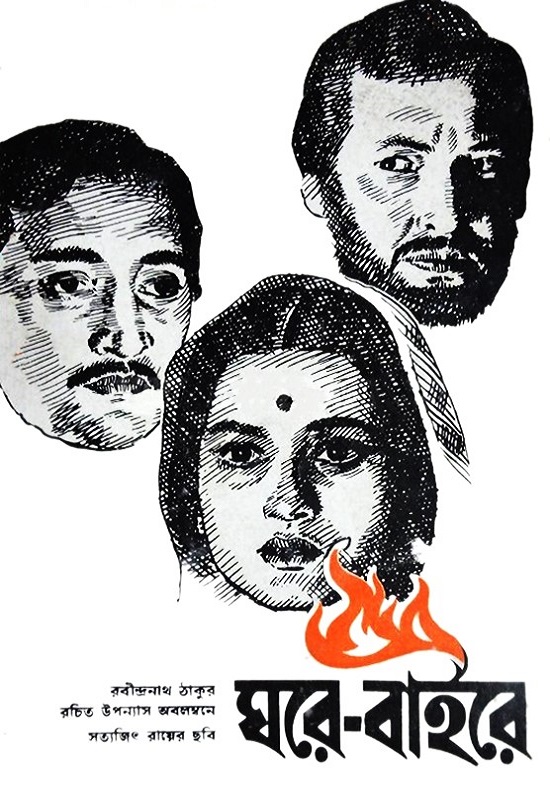
GHARE BAIRE
This was a story that intrigued Ray even prior to the production of Pather Panchali, even though Ghare Baire released much later in 1984. Based on Rabindranath Tagore’s novel, it has a layered perspective on complex issues, that concern Indian’s take on hyper-nationalism, women’s empowerment, spirituality and traditions. The film had mixed reviews in India, despite its commercial success. However, it won both national and international acclaim and awards too.
***
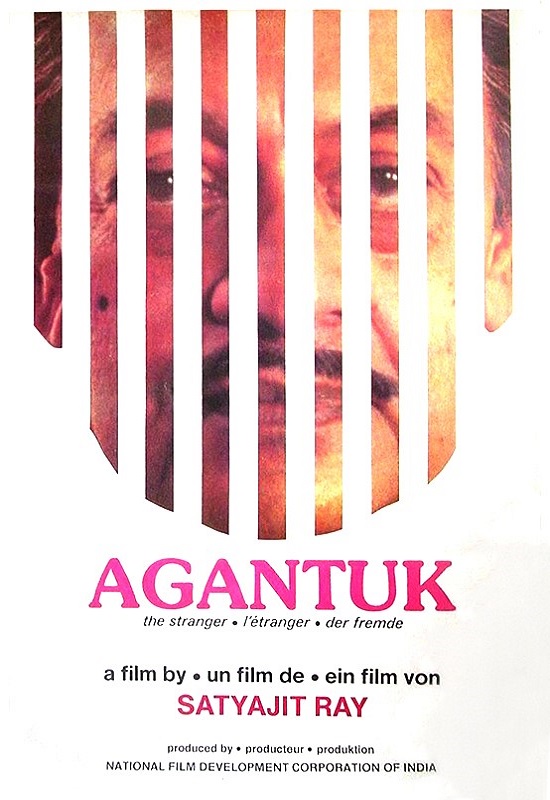
AGANTUK
Satyajit Ray’s swan song Agantuk (1991), released just about a year before his death. It was an interesting plot filled with suspense, humor and delved into trust-issues within families. A brilliant Utpal Dutt in the title role took the film to new heights. The film was scripted by Ray himself. Like most of Ray’s films, Agantuk also won the national award for Best Film.
Photo by Felix Mooneeram on Unsplash





